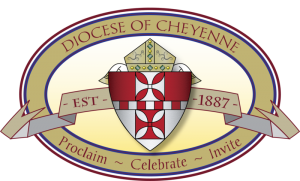
THE DIOCESE OF CHEYENNE
STATUTES OF PARISH PASTORAL COUNCILS
I. Purpose
The purpose of the Parish Pastoral Council is to give counsel to the Pastor, or his equivalent in Canon
Law, concerning the pastoral activity in the Parish. Under his authority, this Council investigates, considers, and
proposes practical conclusions about those things which pertain to the pastoral works in the Parish. Each parish is to
have a Parish Pastoral Council, and the Pastor is to seek the opinion of the Parish Pastoral Council. The Parish Pastoral
Council is a distinct and separate body from the Parish Finance Council.
II. Membership and Terms of Office
A. In order to serve as a member of the Parish Pastoral Council, a person must be:
- A fully initiated Catholic
- Outstanding in firm faith, good morals and prudence
- Free of any canonical penalties or impediments including an irregular marriage and,
- Selected according to the norms that follow.
B. The Parish Pastoral Council shall be composed of not less than five (5) but not more than fifteen (15) members, at
least half of whom are to be elected. The exact number is to be determined by the Pastor, or his equivalent in canon
law.
C. The elected members of the Parish Pastoral Council, constituting at least half of the membership of the Council,
shall be chosen according to the following norms: The Pastor, or his equivalent in Canon Law, in a manner
determined by him, is to solicit from the members of the Parish nominations for the Parish Pastoral Council. - The Pastor, or his equivalent in canon law, in a manner determined by him, is to propose qualified and accepting
nominees as candidates for positions on the Parish Pastoral Council, and an election is to be conducted according to
the norms of Canons 119, 1o and 164-179 of the Code of Canon Law. - Elected members should be chosen in a manner which represents the parish; therefore, if a Parish has one or more
Mission Church Communities which do not have their own Pastoral Councils, then some of the elected members are
to be elected from these Communities, in a manner determined by the Pastor, or his equivalent in Canon Law. - Elected members serve for a term of three (3) years. Upon the completion of a term, they may be elected for
additional terms. Terms may be either concurrent so that all elected members assume and lose office at the same
time or staggered so that each year no more than a third of the elected members are newly elected or re-elected
members. The Pastor, or his equivalent in Canon Law, shall determine whether terms are concurrent or staggered. - The Pastor, or his equivalent in Canon Law, may fill a vacancy at any time, by appointing a replacement for the
vacant elected position and the newly chosen member shall serve for the remainder of the unexpired term.
